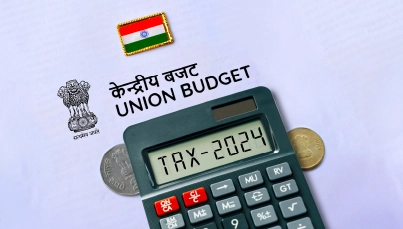Making India the gold trading capital of the world
Posted On Wednesday, Feb 24, 2016
Gold started off the New Year on a solid footing, like it has done for much of the last decade. Yet there is little to rejoice for an Indian gold investor. Not that the Indian investors have not benefitted from rising gold prices but the increase here has been a little lower than what should have been. The Indian gold market is trading at steep discount to its parity rate. Indian gold prices are derived from the international gold prices and converted to local currency using the rupee rate and adding the duties and taxes prevalent to arrive at the Indian gold price or the parity rate. The price quoted in the local markets is running at a steep discount to this derived Indian gold price or parity rate.
An import cut in this budget?
There is a widespread expectation in the market that the import duty will be cut by about 2% in the upcoming budget. And this expectation seems to be getting priced in by the market participants. Last year, market participants were expecting a duty cut in the budget which eventually did not materialize. Even this year it looks unlikely to us that the government would provide markets with a cut in import duty given that the fiscal looks already stretched.

Source: Bloomberg
As seen in the chart, the black line is the gold spot price which is trading at a discount to the futures price and to the parity rate. The blue colored line is the MCX futures market which is trading at a discount to parity rate shown in purple color, largely reflecting the duty cut expectations.
More reasons for the discount in Indian gold prices
However, the discounts in the physical market have been larger than the duty cut expectations. Lower demand is cited as another reason behind the discount in physical gold prices. We have seen Indian gold demand wane in times of increased volatility or sudden jump in prices. And with the sudden jump in prices, there aren’t many takers at this point in time. However, rather than blaming lower demand, the discounts are more to do with the government policies surrounding the gold markets in India.
It is easy to understand that rising imports are a cause of worry for the government as it increases the pressure on the current account deficit. But, it’s indeed difficult to understand why the export of gold is prohibited.
Not really prohibited, in the true sense - you can export gold, but it requires a minimum value addition of 3%. If we were able to export the gold back out of the country without constraints, the markets might be in equilibrium to the international parity rates and the government would get dollar inflows as well and ease some pressure of the depreciating rupee. But in the current context, it is not so simple as local levies and taxes like the import duty, VAT, etc. act as a hindrance. This is another reason for a distorted gold market and does hamper the development of the market in many ways. The customs duty collected helps reduces the deficit by only a negligible proportion. Hence, the government should focus on implementation of reforms and look at the bigger picture to develop the gold market as it truly possesses the potential of becoming the gold trading capital of the world.
Making India the gold trading capital of the world
The government is indeed taking steps in the right direction by introducing schemes addressing the gold market like the gold monetization scheme, sovereign gold bond etc. which were indeed the need of the hour. Also, an attempt towards more financial inclusion is seriously undertaken through schemes like Jan Dhan Yojana. However, we think that there has to be significantly greater efforts to solve problems. These schemes and policy rhetoric towards discouraging consumption is addressing the symptoms and not the problems. The sovereign gold bond which many were hopeful to get an overwhelming response to be mopped up entirely in the first tranche itself has made Rs. 1,044 crores over 2 tranches which is miniscule in comparison to India’s physical consumption and its own target to mobilize Rs. 15,000 crores this fiscal.
India has all it takes to become a dominating power house that can control the gold market because of its great consumption power, huge gold stock reserves with individuals, and established exchanges and products that are needed for the development of the gold market already in place. However, instead of being a price driver, we have been categorized as price takers.
The BJP government which was in power in early 2000s took some bold steps and provided its vision for the gold market. The same can be illustrated as follows:
| 1) | 2001-2002:"In order to discourage smuggling I propose to reduce the duty on gold from Rs. 400 per 10 grams to Rs. 250 per 10 grams."- Yashwant Sinha | |
| 2) | 2003-2004:"As for gold, it is proposed to reduce the customs duty on imported gold to Rs.100 per 10 grams from the present level of Rs. 250 per 10 grams, but only when it is brought in the form of serially numbered bars, or in the form of gold coins, not as ‘tola’ bars, please. It is my hope and expectation that this will become the first step in enabling India to shortly emerge as the gold-trading capital of the world."- Jaswant Singh |
Just a simple question: Where has the dream of making India the gold-trading capital of the world disappeared?
In today’s date, customs duty has become a revenue-earner for the country and this dream of making India the gold-trading capital has been sacrificed for the sole purpose of filling the government coffers in a bid to reduce the deficit.
Our appeal
Government policies play a big role in making or breaking the market. Hence, we urge the Finance Minister to stay uninfluenced by the short term gains of the custom duty and look towards the complete development of the gold markets in India.
Further reforms that can be introduced to fulfill the dream of making India the gold-trading capital of the world:
A gradual move towards a free market, which allows imports and exports of gold to be made freely or with minimal restrictions / reporting. While there is a high chance that domestic prices are not at par with international prices due to excessive price fluctuations, this is unlikely to happen in a free market and would thus serve as a stepping stone towards bringing efficiency in the markets.
Get domestic prices on level with international prices so as to bring about an efficient two way transfer of gold. This will help lay down some basic rules in order to find the true price of gold and be able to influence global prices. For this to become successful, all the additional taxes, duties and levies need to be abolished. If the motive is to generate revenues, there are many other ways post the market development. Like the government could apply an annual fee on foreign bullion players trading in Indian markets and raise revenues through the fees charged on them.
An entity like Gold Corporation is the need of the hour to ensure smooth implementation and coordination of the newly launched gold schemes. It would increase the chances of success when the shortcomings can be easily addressed by a focused entity. Not only that, India could further develop its gold market and use its strength to become a hub for gold trading, refining, jewelry manufacturing etc as far as the global gold market is concerned. India has the potential and expertise in gold and also being the largest consumer and holder of gold, this is certainly possible – an entity like Gold Corporation can help in a big way by creating the right policies to help develop the market.
It is important that various forms of gold purchase today become fungible and easily transferable over time. One should be able to deliver their sovereign gold bond and get physical gold like it happens in an ETF or be able to deliver Gold ETFs for exchange for a piece of jewelry. This will ensure all-round development of the gold eco system and help in brining in the much needed trust of people in various gold initiatives and have them look at options other than physical gold.
In conclusion, there seems to be higher probability that the customs duty will be maintained at current elevated levels of 10%. The customs duty collected helps reduces the deficit by only a negligible proportion. Hence our appeal to the government is that, the government should focus on implementation of reforms and look at the bigger picture to develop the gold market as it truly possesses the potential of becoming the gold trading capital of the world.
Source: Bloomberg
Disclaimer, Statutory Details & Risk Factors:
The views expressed here in this article / video are for general information and reading purpose only and do not constitute any guidelines and recommendations on any course of action to be followed by the reader. Quantum AMC / Quantum Mutual Fund is not guaranteeing / offering / communicating any indicative yield on investments made in the scheme(s). The views are not meant to serve as a professional guide / investment advice / intended to be an offer or solicitation for the purchase or sale of any financial product or instrument or mutual fund units for the reader. The article has been prepared on the basis of publicly available information, internally developed data and other sources believed to be reliable. Whilst no action has been solicited based upon the information provided herein, due care has been taken to ensure that the facts are accurate and views given are fair and reasonable as on date. Readers of this article should rely on information/data arising out of their own investigations and advised to seek independent professional advice and arrive at an informed decision before making any investments. Please visit – www.quantumamc.com/disclaimer to read scheme specific risk factors.
Related Posts
-

Navigating the New Taxation Rules for Quantum Investors
Posted On Thursday, Jul 25, 2024
The Union Budget announced on 24 July, 2024 brought in controversial changes such as removal of indexation benefits and changes in tax rates.
Read More -

Ballots Cast, Budgets Await: Market Reactions in the Post-Election Economy
Posted On Thursday, Jul 18, 2024
As India emerges from a dynamic election cycle, the investing landscape finds itself at a crossroads. While the newly formed Coalition government settles in, pre-budget expectations are shaping market sentiment.
Read More -

The Governance Feature in this ESG Fund
Posted On Friday, Jul 12, 2024
In the realm of sustainable investing, the governance aspect of an ESG (Environment, Social, and Governance) fund holds paramount importance.
Read More
Get In Touch
Take small steps in your financial planning to achieve big dreams! Start your investment journey today!



